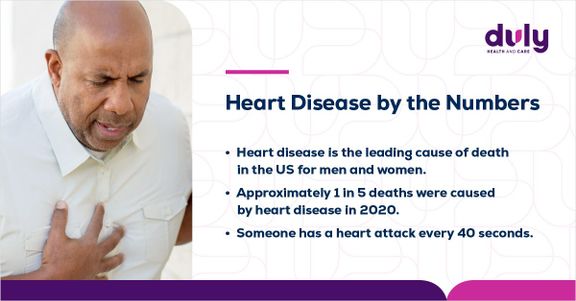Whether you’re walking to your car, cooking dinner or shoveling snow, your heart is hard at work to make all of these activities possible. You may not think about your heart too often, but it has a big impact on your ability to do tasks each day — and it has a big impact on your overall health.

Your heart is one of the most important muscles in your body, and there are many ways you can show your heart some love each day. From eating heart-healthy foods to getting a good amount of exercise each week, you can make small changes that protect your heart.
While these recommendations for heart health aren’t going anywhere, some recommendations are changing — like the recommendation to take aspirin to prevent a heart attack or stroke.
Here’s what you need to know about new recommendations for aspirin and lowering your risk for heart attack.
Wait. Has the Recommendation for Taking Aspirin to Prevent Heart Attack Changed?
If you grew up believing that adults should take a baby aspirin every day once they turned 50 to prevent a heart attack, you’re not the only one. No, you didn’t just make this up — in fact, this was the standard medical recommendation for many years.
But with more research, medical experts recently came out with a new recommendation for aspirin usage.
New Recommendation About Aspirin Usage
For adults between the ages of 40 to 59, who have a 10% or higher 10-year cardiovascular disease risk, taking aspirin every day should be a personal decision you discuss with your provider. Talk to your provider today about whether aspirin is the right choice for you.
A 2022 study found that for people who are 40 to 59 years old with a 10% or higher 10-year cardiovascular disease risk, there is a small benefit to taking daily aspirin. If you don’t have a higher risk for bleeding, you may be more likely to benefit from daily low-dose aspirin.
Because the benefit is small, the US Preventive Services Task Force that conducted this research gave this recommendation a C‑grade, meaning that a medical provider should make this aspirin recommendation only for some patients and only if they meet certain criteria.
Not everyone should take aspirin to prevent heart disease, and you should only take it for your heart health if your doctor recommends it. Your Duly provider or cardiologist can help you determine your risk for heart disease and if daily aspirin is a good idea for you.
Are There People Who Should Still Take Aspirin?
If you have known cardiovascular disease or have had a heart attack or a stroke already, your doctor may recommend taking aspirin as a part of your treatment plan.
Because heart attacks and strokes are often caused by blood not being able to move to your heart or brain, aspirin can be a good treatment because aspirin is a blood thinner. But aspirin should only be used to prevent a heart attack or stroke under a doctor’s guidance.
There are other reasons you may take aspirin apart from your heart. Nonprescription aspirin can be taken to help with common health problems like:
- Fever
- Muscle aches
- Headache pain
- Toothaches
- Arthritis
- Menstrual cramps
Should I Take Aspirin During a Heart Attack?
With the change in aspirin recommendation, you may be wondering if you should take aspirin during a heart attack.
It’s important to remember that taking aspirin isn’t going to stop your heart attack symptoms all on its own. Taking aspirin and then waiting for your pain to go away isn’t enough.
If you are experiencing a heart attack, call 911 before you do anything else. Don’t try to treat your heart attack symptoms on your own or wait it out. Your 911 operator might recommend you take aspirin while you wait, but don’t just take an aspirin instead of calling 911.
Aspirin can help prevent different heart conditions when prescribed by your provider, but you should not take aspirin if you are having a stroke. Some strokes are caused by a blood clot, but some aren’t — and in some cases, taking aspirin can make your stroke symptoms worse.
When you are experiencing a heart event, call 911. Then, the emergency providers and doctors can get you the treatment you need.
Put Your Heart Health First
The risk of a heart attack or a stroke can be scary — especially if you’ve already had one or if they run in your family. While heart disease impacts so many different people, making your own decision to take aspirin is not the answer.
Talk to your Duly provider or cardiologist about your concerns. They can assess your heart health and let you know if aspirin is a good idea for you. They can also recommend other lifestyle changes that can benefit your heart health.
While changing recommendations can leave you wondering what to do next, Duly providers can help you make the decisions that work best for you, your risk, and your health.
Health Topics:







